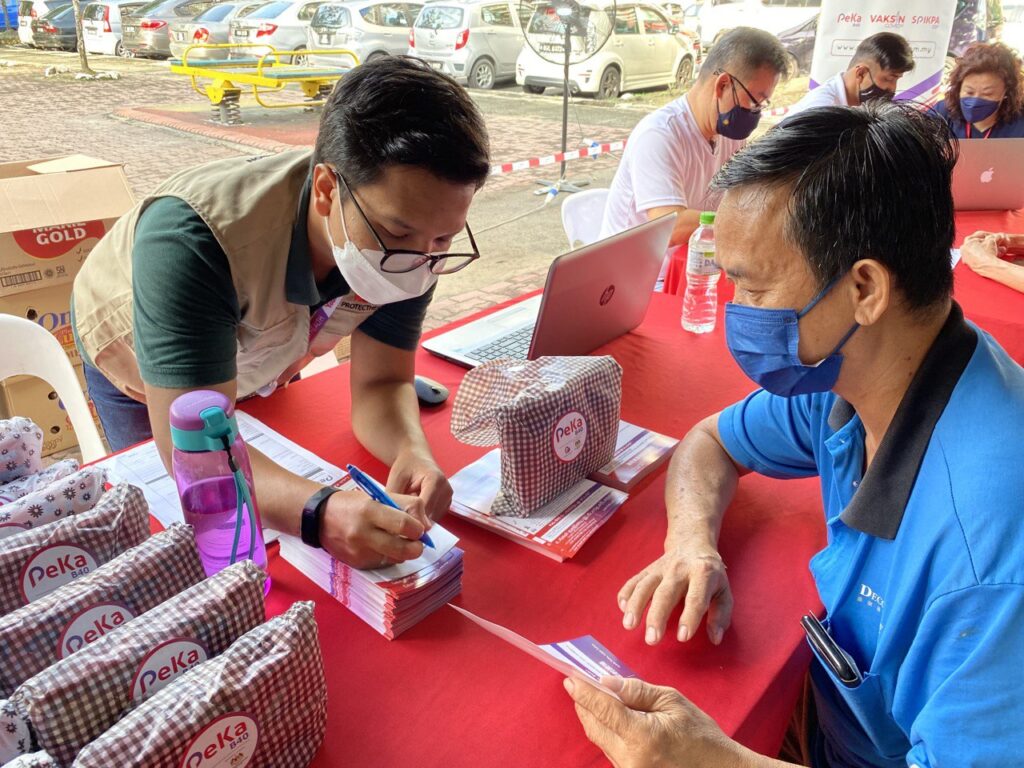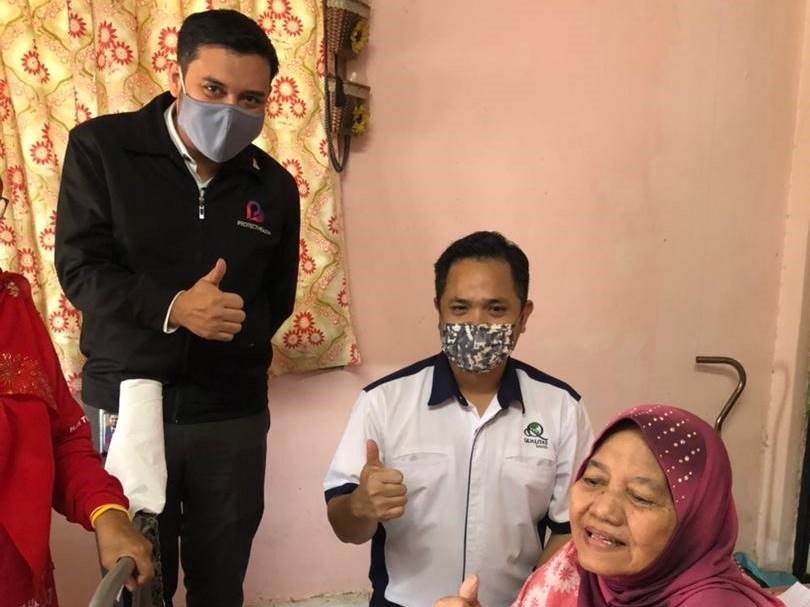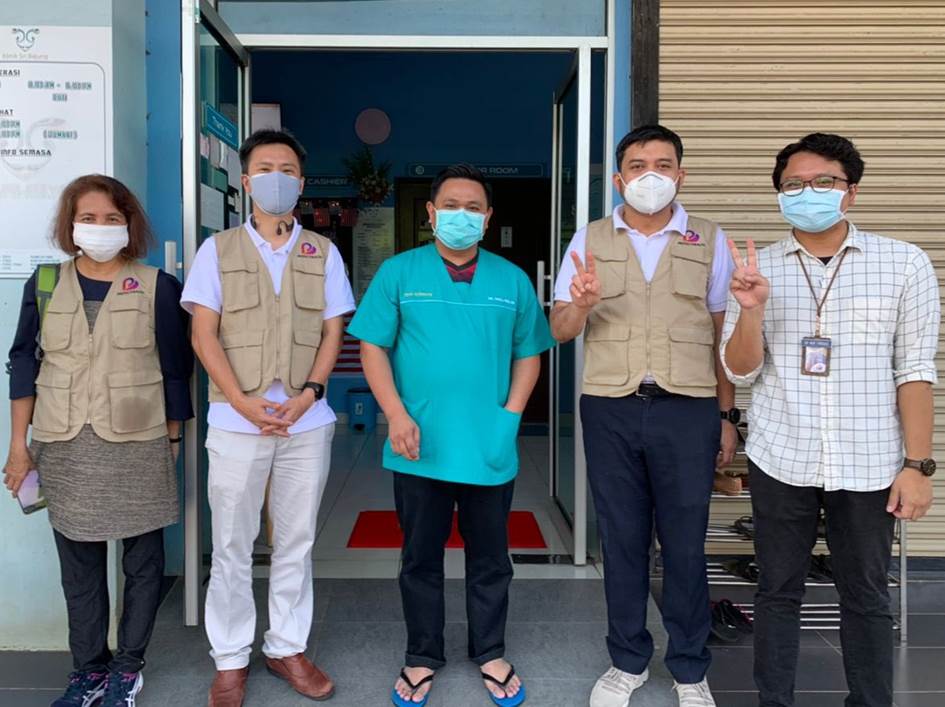KUALA LUMPUR, Dec 29 – Even before the pandemic, ProtectHealth Corporation was running health screenings for low-income earners, a crucial programme in a country with high prevalence of chronic illness that worsens outcomes from Covid-19 disease.
Since 2019, the not-for-profit company owned by the Ministry of Health (MOH) has provided 545,487 health screenings under the PeKa B40 programme for the bottom 40 per cent of income earners.
The PeKa B40 programme, from its inception in 2019 until this year, has also helped 29,816 recipients with health aid, or medical equipment worth up to RM20,000 such as stents for the heart, hearing aid devices, wheelchairs, and intraocular lenses, among others.
To date, 6,016 cancer patients have received incentives from PeKa B40 for completing their treatment, while another 19,978 patients have received transport incentives (maximum RM500 for peninsular Malaysia and maximum RM1,000 for Sabah, Sarawak, and Labuan) to cover costs of travel for treatment in MOH hospitals.
A total of 3,612 medical practitioners, including 2,570 general practitioners (GPs), are currently providing services to the PeKa B40 programme as of November 30.
In Malaysia 🇲🇾, @KKMPutrajaya is ensuring #HealthForAll through PeKa B40, an initiative that provides healthcare access for "Bottom 40%" low-income households. Amidst the #COVID19 pandemic, @PeKaB40 continues to provide healthcare benefits for Malaysians who need it the most. pic.twitter.com/ad9tH0wR0G
— WHO Malaysia, Brunei Darussalam & Singapore (@WHOMalaysia) December 12, 2020
The Covid-19 pandemic – with lockdowns and public fears of visiting health care facilities – disrupted the PeKa B40 programme. Health screenings dropped by 59 per cent to 91,842 this year from 222,031 in 2020; patients receiving health aid fell to 11,664 from 13,991 in 2020; and incentive uptake for completing cancer treatment also decreased to 1,417 in 2021 from 2,998 the previous year.
“ProtectHealth is encouraging our providers to conduct their own outreach programme, which will increase the take-up rate of the non-communicable diseases (NCDs) health screening via PeKa B40,” ProtectHealth CEO Anas Alam Faizli told CodeBlue in an interview.
“On the other hand, to further ramp up the take-up rate of the NCDs health screening in 2022, ProtectHealth has also been engaging with various strategic partners such as government agencies, state assemblymen’s offices, non-government organisations (NGOs), government-linked corporations (GLCs), local community leaders and many more.”
Anas described NCDs as among the “silent killers” among Malaysians, citing the National Health and Morbidity Survey 2019 that found more than 3.4 million people in Malaysia currently live with two major risk factors for either diabetes, hypertension, or high cholesterol.
People with comorbidities also have higher risk for severe disease and death from Covid-19.
Running Biggest Ever Public-Private Partnership Programme in Health Care Without Pandemic Playbook

Although Covid-19 put numerous stresses on Malaysia’s health care system, there was also a silver lining in the pandemic that created opportunities and accelerated public-private partnership through the implementation of the National Covid-19 Immunisation Programme (PICK).
“PICK is by far the largest ever public-private partnership programme in healthcare executed in the country, in terms of the 26 million people who have been vaccinated within a short span of time of its establishment and implementation. This has also been the largest public-private partnership in the health care sector and is continuing to grow,” Anas told CodeBlue.
“When Covid-19 hit our country, there was no playbook for our health care system in managing the pandemic. Other countries also didn’t offer much reference. This demands us to explore something new and to strategically implement it.”
ProtectHealth was tasked with bridging the communication between the government and private medical practitioners (PMPs) in order to ensure coronavirus vaccines were rolled out effectively. Malaysia’s largest ever and most complex vaccination programme – in a country where adult inoculation is not very common – encountered some hurdles initially.
“ProtectHealth understands that to lead, a certain integrity and positive reputation is required. In the beginning, the PMPs did not immediately jump on the bandwagon. With the mandate by the government, ProtectHealth immediately engaged with all the PMPs. Persuasion was needed and ProtectHealth started with engagements with the PMPs and its associations to understand their needs,” Anas explained.
“Another critical challenge is the logistics and the fluidity of the vaccines supply and utilisation. There are situations where the supply of one type of vaccine is running low, and the other is in abundance. MOH Pharmacy needs to identify and distribute them accordingly to avoid wastage. There are so many fluidities in the planning. It is noteworthy that there is no playbook on carrying out a nationwide vaccination programme.”
Anas recounted that throughout the operation of PICK, as vaccination centres (PPVs) opened up every week with new providers coming onboard, the programme saw various people having to work together after meeting each other for the first time.
“We did not have any time for teambuilding and ProtectHealth plays the role of bridging all these agencies together. In addition, ProtectHealth continues to engage with our partners consistently to discuss on policy development as well as implementation.”
He added that besides opening up communication channels, including dedicated helpdesks, for partners in the vaccination programme that helped gain trust from PICK’s health care providers, ProtectHealth is also very prompt in payments to PMPs with an average payment time of nine days.
A total of 2,476 private Covid-19 vaccination centres are registered under ProtectHealth, consisting of GP clinics, specialist clinics, private hospitals and more. ProtectHealth has administered 46.6 per cent of vaccine doses to date, whereas MOH has administered 51.7 per cent, and the remaining 1.7 per cent are of the private vaccine rollout.
About 80 per cent of Malaysia’s total population have been fully vaccinated. According to the New York Times’ Covid-19 vaccine tracker, Malaysia has the 12th highest coverage of complete vaccination in the world.
Anas also said ProtectHealth would ramp up the Covid-19 booster campaign by increasing daily capacity at clinics, encourage PMPs to set up dedicated off-site PPVs outside clinics and hospitals, increase its fee to incentivise greater PMP participation, and recommend PMPs to run outreach vaccination for target groups like factory workers.
Partnership Forged For The Future

The unprecedented public-private partnership in the Covid-19 vaccination programme also included links with Selgate, where ProtectHealth provided training to clinics under the Selangor state health care provider.
“The training involved immunisation programme policy, vaccination model, information technology and system requirements, vaccine cold-chain management, vaccine shot handling, side effects management, vaccination management monitoring and so on,” Anas said.
He expressed hopes that the federal government’s collaboration with health care providers from the private sector and developed states like Selangor will extend to other aspects of the country’s “dichotomous” healthcare system where public and private sector integration can be much enhanced
“ProtectHealth plays a vital role in bridging both the government and private sector, particularly in the health care system, where ProtectHealth facilitates both parties. This has enabled us to better understand the priorities and limitations of both sides. By having insights from both points of view, ProtectHealth has developed a shared vision with all our partners, where we move towards one goal for the health care system to be fair and equitable for all.
“By stating this, we are hoping to see more GPs to be our partners in extending comprehensive primary care services via PeKa B40, such as a booster to the preventive care, treating those who need care, and helping people become more active in managing their own health,” Anas said, adding that this should also extend to health care providers under state governments like Selgate.
PeKa B40 free health screening for B40. Fantastic programme started by @DrDzul which we are continuing. @PERKESOofficial also has a free health screening programme which is woefully underutilised. These are free health screening prog towards a healthier Malaysia. https://t.co/LSJTm5eLI2
— Khairy Jamaluddin 🇲🇾🌺 (@Khairykj) October 6, 2021
While acknowledging that a healthier population can only be built with better health literacy, awareness, and infrastructure and that it is the responsibility of every party to realise this goal, Anas pointed out that health care costs are on the rise and there is an imbalance in the system.
“The health care workload distribution is still heavy towards the public sector, while the health care resources are abundant in the private sector. The challenge is to rationalise and redistribute this workload and reduce the private health care costs,” he said.
“Despite that, we are apprehensive that the current system may not be sustainable in the long term, with the ageing population, increase in chronic diseases, rapid rise in health expenditure, and high out-of-pocket spending.”
MOH facilities are currently funded by revenue from general taxation while teaching hospitals have their own funding sources, aside from some money from the federal government, as the latter typically provides newer treatments than MOH, albeit at a lower price than private hospitals. Malaysia has yet to implement a national health insurance scheme.
“We need to widen the health care financing source and build up capacity and mechanism to strategically purchase services from the private sector when rapid escalation of capacity is required,” Anas said.
“Sustainable health care financing through a national-scale strategic purchasing agency could be one of the ways to ensure our health care system is resilient and adaptive that can withstand such a crisis. We will continue to be the main part and key driver of any plan for health reforms in the country in line with our slogan ‘Your Health, Our Mission’.”









